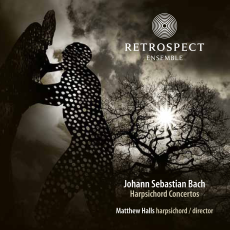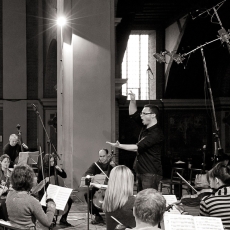Retrospect Ensemble - Bach: Harpsichord Concertos - BBC Online
Classical musicians wanting to promote their genre nowadays could learn a thing or two from 18th century Leipzig's Collegium Musicum. Founded by Telemann in 1703, and later presided over by JS Bach, this group of instrumentalists - visiting virtuosi, home-grown talent, and members of the Bach family - met every week to give public concerts of the most fashionable music of their time.
The twofold masterstroke of these concerts was that they took place not in concert halls but instead where every image-conscious person was already hanging out: coffee houses. Even better, the concerts were free. Imagine if today's top composer-instrumentalists were to put on free weekly concerts of new music in trendy pubs and coffee bars.
In the 1730s, Bach wrote an abundance of harpsichord concertos for these Collegium Musicum concerts, and Retrospect Ensemble have picked an enlivening and mutually complimentary selection for this disc. Their curtain-raiser is Concerto VI in F Major BWV 1057, a reworking of the fourth Brandenburg Concerto (the one with the recorders). Next comes the Concerto in G Minor BWV 1058, reworked from the famous A Minor Violin Concerto BWV 1041.
Then, after the unsettled sturm und drang of the Concerto in D Minor BWV 1052, it's all smiles again for the joyful Concerto in A Major BWV 1055. So, it's mostly pretty famous stuff. However, it's also sounding well and truly fresh here. Tempi are taken at a sprightly ‘period' pace, but with a decorous absence of white-knuckle tumbles to the finish line. There's just a lovely feel of exuberant forward momentum, rhythm and dance, presented with vibrantly crisp articulation.
The disc's highlight is actually the slightly less hummable D Minor Concerto; in this virtuosic tour-de-force, Matthew Halls and the Retrospect Ensemble wholly deliver on drama and high-speed harpsichord prowess in the outer movements, and reap all the poignancy of the Adagio.
All in all, this is a recording that makes you sit up and listen, both for the verve of the ensemble playing and the range of colours and dynamics Halls produces, and for the sheer ear-popping brilliance of their chosen repertoire.

